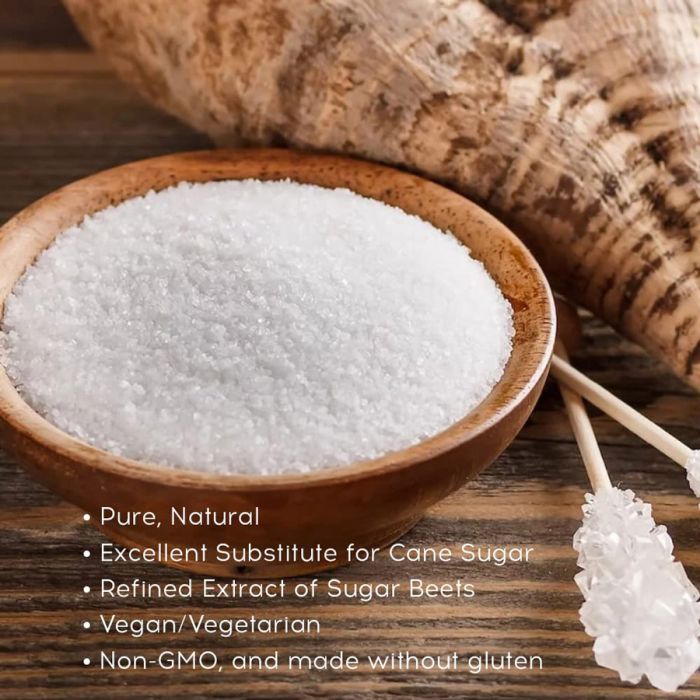Checking Out the Differences in Usages and Advantages Between Beet Sugar Vs Cane Sugar
In the culinary world, the choice in between beet sugar and cane sugar is not merely concerning sweetness yet includes a nuanced consideration of taste, application, and effect. While both sugars come from different plants, each undertakes one-of-a-kind manufacturing processes that discreetly affect their characteristics and viability for various recipes. As chefs and customers significantly prioritize both the ecological and taste profiles of their ingredients, understanding these distinctions comes to be vital. This exploration uses insight right into just how each sugar type can best improve cooking developments.
Origins and Manufacturing Procedures of Beet and Cane Sugar

Walking cane sugar, on the other hand, originates from the sugarcane plant, an exotic lawn belonging to Southeast Asia today grown in exotic areas worldwide. The production of cane sugar begins with the harvesting of cane stalks, which are squashed to launch the juice. This juice is then boiled to focus it, after which it is rotated in centrifuges to generate raw sugar crystals. These crystals are more improved to generate the white sugar commonly readily available in stores.

Nutritional Material and Wellness Considerations

When comparing the nutritional content of beet sugar and cane sugar, it ends up being noticeable that both kinds basically offer the exact same calorie worths, with about 16 calories per tsp and no significant nutrient diversity. Both sugars, when eaten in excess, can add to elevated blood glucose degrees, a danger aspect for diabetes and other metabolic conditions. From a health and wellness viewpoint, regulating intake of any kind of sugar, whether from beet or cane, is advisable to avoid these possible unfavorable effects on official site wellness.
Flavor Profiles and Culinary Applications
Regardless of their comparable chemical structures, beet sugar and cane sugar differ subtly in taste, which can affect their usage in different cooking contexts. Walking cane sugar often carries a tip of molasses, also in its polished form, lending a cozy, caramel-like undertone that boosts baked items, coffee, and chocolate-based dishes. On the other hand, beet sugar is characterized by its very improved, neutral taste, making it a flexible sweetener that does not change the taste accounts of meals.
Environmental Effect and Sustainability
While both beet and cane sugars are acquired from plants, their environmental influences differ significantly due to the unique methods of growing and handling needed for each. Sugar beet cultivation commonly includes extensive mechanization, which can boost fossil fuel intake and carbon exhausts.
Furthermore, the processing of sugarcane frequently creates a substantial amount of waste, including you can check here bagasse, which, although functional as biofuel, regularly adds to air pollution if melted inefficiently. Sugar beet processing uses even more of the raw products, resulting in much less waste. Both sectors face obstacles in decreasing their environmental footprints, however continuous advancements in agricultural methods and waste administration are aiming to improve sustainability.
Economic Variables Influencing the Sugar Industry
The financial characteristics of the sugar sector are substantially affected by international market demands and profession plans. In regions where sugarcane or sugar beet manufacturing is subsidized, producers might have a financial benefit that enables them to offer reduced rates on the global market.
Additionally, variations in worldwide demand for sugar, affected by nutritional patterns and industrial usage in foodstuff, straight influence costs and manufacturing levels. beet sugar vs cane sugar. Climate problems also play an essential function, as they can substantially impact crop returns and, subsequently, the supply chain. Learn More Here This variability introduces a level of financial unpredictability that can bring about investment volatility in sugar manufacturing fields, influencing decisions from growing to market strategy
Verdict
In conclusion, both beet and cane sugar have distinct qualities that suit different cooking requirements. While cane sugar imparts an abundant taste perfect for boosting baked items, beet sugar's nonpartisanship is excellent for lighter dishes.